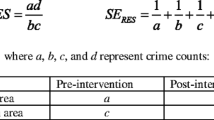Abstract
Researchers and policymakers alike have made the reduction of citizen alienation one of the important goals for decentralizing public services. Decentralization is thought to bring government closer to the public being served, and therefore to improve public attitudes toward government. No existing research fully tests this hypothesis. However, several national surveys provide sufficient data to examine the relationships between various types of citizen activity linked with decentralization and the two dimensions of political alienation, powerlessness/efficacy and distrust/trust. A review of these surveys reveals that decentralized activity, whether taking the form of citizen participation, citizen awareness of decentralized facilities, or service improvements, is consistently associated with people's sense of efficacy, but not to their sense of trust. The results thus suggest that decentralization may affect alienation in terms of reducing sense of powerlessness, but that it has no impact on people's trust in government. Decentralization of public services may therefore be one of many steps taken to reduce citizen alienation toward government, but it will not, contrary to expectations, significantly impact on alienation by itself.
Similar content being viewed by others
Author information
Authors and Affiliations
Rights and permissions
About this article
Cite this article
Yin, R.K., Lucas, W.A. Decentralization and alienation. Policy Sci 4, 327–336 (1973). https://doi.org/10.1007/BF01435128
Issue Date:
DOI: https://doi.org/10.1007/BF01435128




